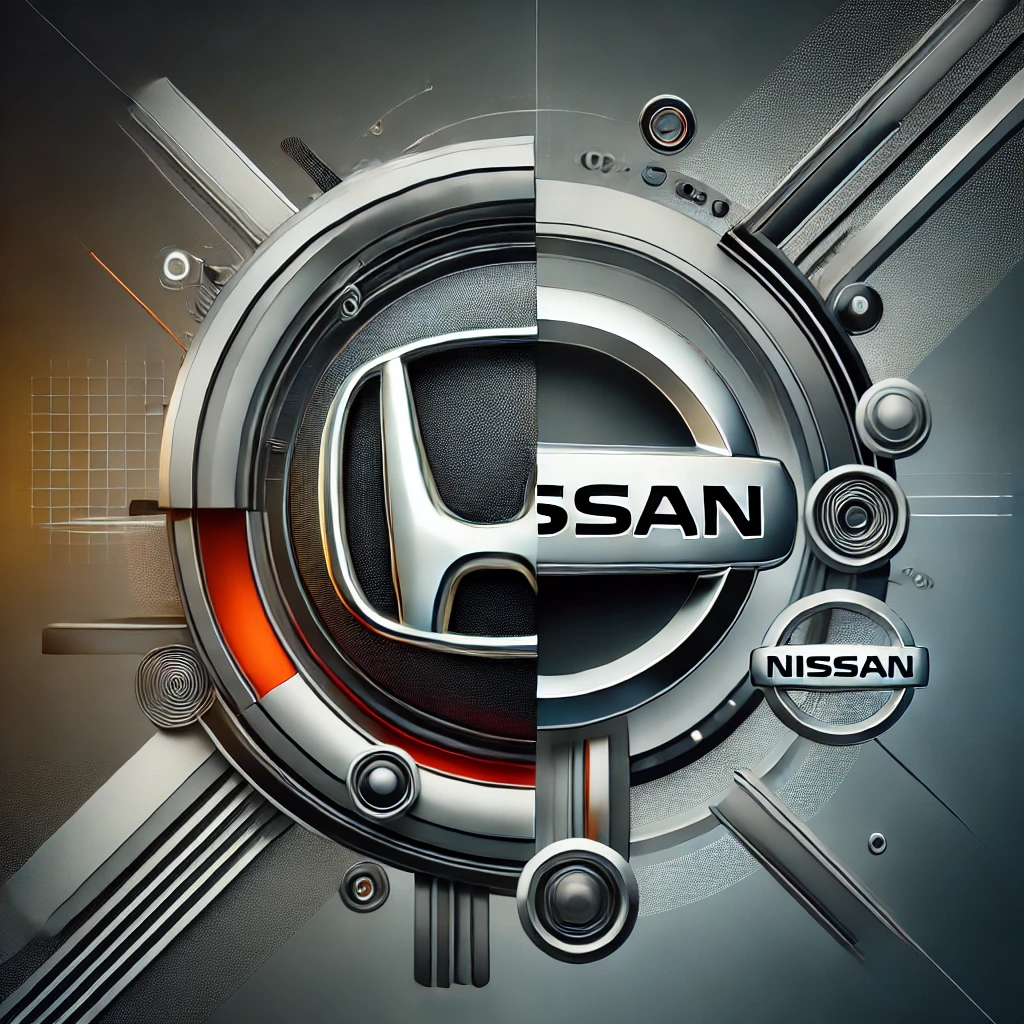Honda and Nissan are in discussions to strengthen their partnership, which may include a potential merger, according to two sources on Wednesday. This development highlights how Japan’s once dominant auto industry is being transformed by competition from Tesla and Chinese manufacturers.
If Honda and Nissan merge, they would form a company valued at $54 billion, with an annual production capacity of 7.4 million vehicles. This merger would position them as the third-largest auto group in the world by vehicle sales, following Toyota and Volkswagen.
In March, the two firms established a strategic partnership to collaborate on electric vehicle development. However, Nissan’s recent financial and strategic challenges have increased the urgency for deeper cooperation with its larger competitor, Honda.

Last month, Nissan revealed a $2.6 billion cost-saving plan that involves reducing its workforce by 9,000 jobs and cutting 20% of its global production capacity. The company faced an 85% drop in second-quarter profit due to declining sales in China and the United States.
Sanshiro Fukao, an executive fellow at Itochu Research Institute, commented, “This deal appears to be more about bailing out Nissan, but Honda itself is not resting on its laurels.” He noted that Honda’s cash flow is expected to decline next year. Additionally, Honda’s electric vehicles have not performed well.
On Wednesday, Nissan’s shares surged nearly 24% during trading in Tokyo. In contrast, Honda’s shares fell by 3%, despite its market value of $43 billion being more than four times that of Nissan. Shares of Mitsubishi Motors, where Nissan holds a 24% stake as the top shareholder, rose nearly 20%.
Automakers are facing challenges from electric vehicle makers, particularly in China, where BYD and others are making significant progress.
Honda and Nissan are in talks reported by the Nikkei newspaper. These discussions aim to enhance technology cooperation and create a stronger domestic competitor against Toyota.
The companies are exploring ways to increase collaboration, including the potential establishment of a holding company.
Additionally, there are discussions about a full merger and possible cooperation with Mitsubishi.
Although Honda, Nissan, and Mitsubishi have confirmed that no deal has been finalized, Nissan and Mitsubishi acknowledged that the three automakers have previously considered opportunities for future collaboration.
Renault, the major shareholder of Nissan, stated that it had no information regarding the talks and declined to comment.
Renault shares increased by 6.5%.
A source familiar with the matter reported that the three Japanese automakers plan to hold a joint news conference in Tokyo on Monday.
Foxconn, a Taiwan-based company that manufactures Apple’s iPhones and aims to grow its emerging EV contract manufacturing business, approached Nissan about a potential bid. However, Nissan rejected the offer, according to two separate sources.
Earlier on Wednesday, Bloomberg News reported that Foxconn had sought a controlling stake in Nissan.
Foxconn did not respond immediately to a request for comment, and a Nissan spokesperson declined to discuss Foxconn’s approach.
SHIFTING ENVIRONMENT
The automotive landscape is changing. Over the past year, an EV price war initiated by Tesla and BYD has increased pressure on automakers struggling to make profits on new-generation vehicles. This situation has prompted companies like Honda and Nissan to find ways to reduce costs and accelerate vehicle development. Mergers are seen as a significant step toward achieving that goal.
Seiji Sugiura, a senior analyst at Tokai Tokyo Intelligence Laboratory, stated that in the mid- to long-term, this shift is beneficial for the Japanese auto industry as it establishes a counterbalance to Toyota.
He believes that constructive competition with Toyota can positively impact the stagnating Japanese auto industry as it faces competition from Chinese automakers, Tesla, and others.
Any merger between these companies would attract considerable scrutiny from U.S. regulators. President-elect Donald Trump has pledged to take a tough stance on imported vehicles and has threatened 25% tariffs on cars shipped from Canada and Mexico. Industry officials suggest that he might require concessions from Honda and Nissan to approve any merger.
Both Honda and Nissan manufacture cars in Mexico that are exported to the U.S.
Analysts have noted that if a merger were to occur, the companies would need to navigate their differing corporate cultures.
Tang Jin, a senior researcher at Mizuho Bank, explained that Honda has a distinct, technology-focused culture with strengths in powertrains. He suggested that there may be internal resistance to merging with Nissan, a competitor with a different culture that is currently struggling.
Click here for more Business news.

